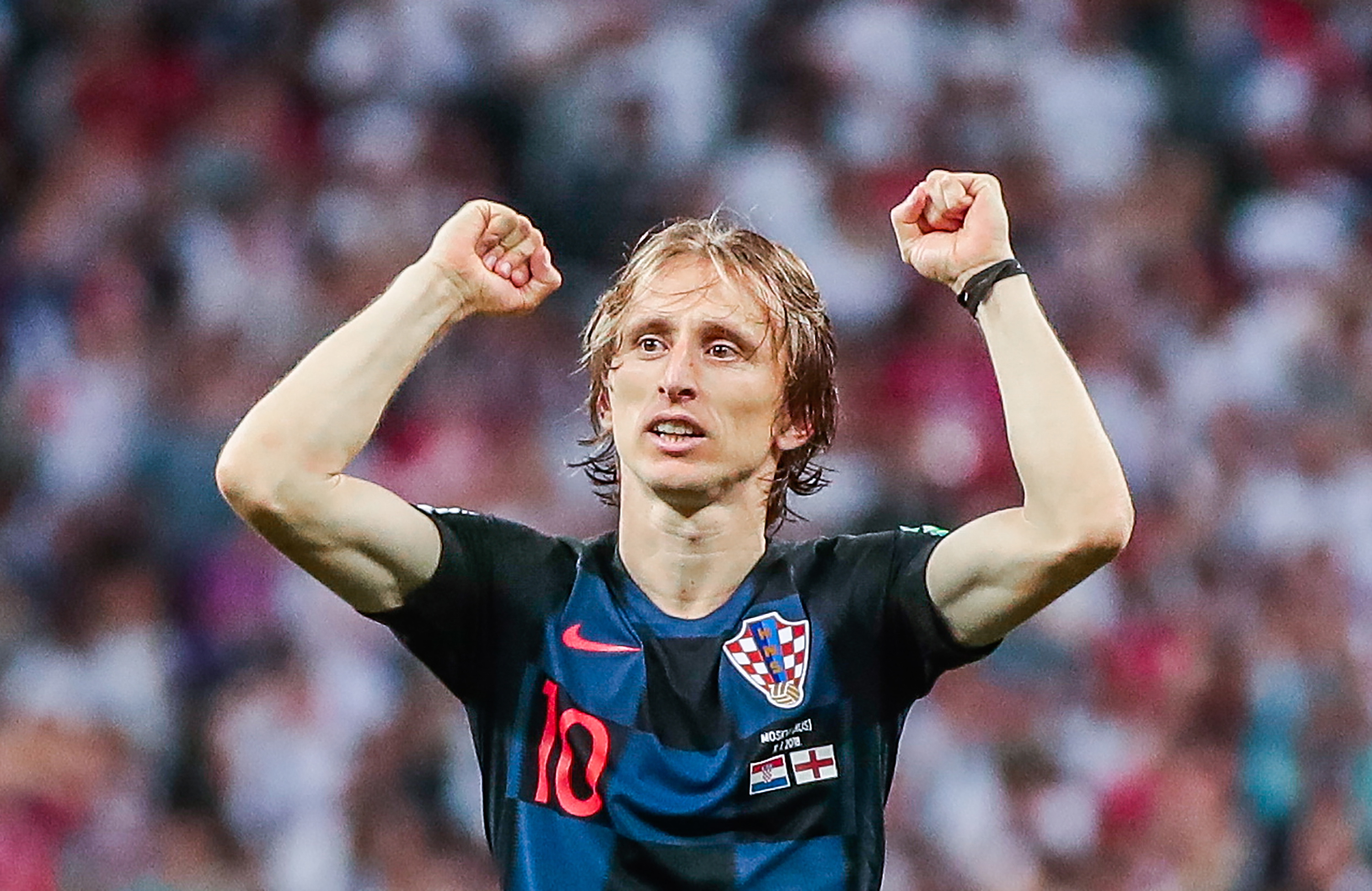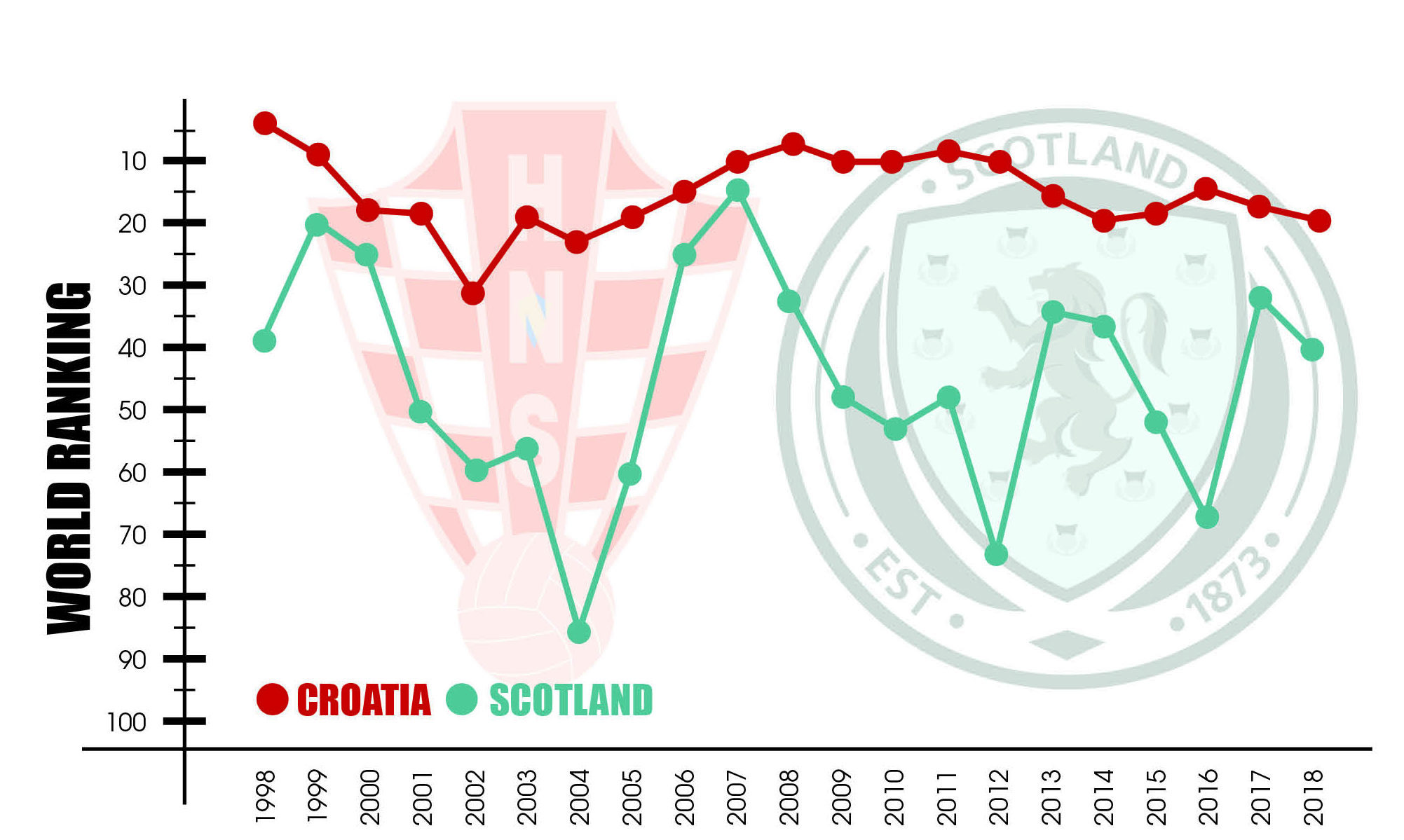
FORMER SFA supremo Gordon Smith says the game’s ruling bodies must shoulder their share of responsibility for Scotland’s shortcomings over the last 20 years.
A generation has watched on enviously as other smaller countries, such as Croatia and Iceland, have grabbed the chance to join the World Cup party.
And the situation has been brought into even sharper focus through the success of England in reaching the last four in Russia.
“It is tough and it is something I had plenty of direct experience of myself when I was chief executive of the SFA,” said Smith.
“I have always wanted us to succeed. I am Scottish and football has been my life.
“However when it is your job and the country isn’t being as successful as you would want them to be, it becomes all-consuming.
“There are many different factors as to why things don’t go as we would hope on the pitch. We are all to blame and must all shoulder responsibility.
“Short-term, it can come down to manager’s tactics, player availability or even just luck on the day.
“In the longer run, though, it is about making sure there is the pathway to get as many players of international standard through as we possibly can to give us the very best chance of success.
“So then you are talking about youth development, and almost every aspect of the club game.
“I was very keen for change, and lobbied inside the SFA as well as outside it.
“The example that comes to mind was my view that we should allow the big clubs to run B teams in the lower leagues.
“It would have made a big difference because it would have allowed young players to get experience of competitive football.
“David Longmuir, who was in charge of the League, took it to the clubs. But they didn’t want to know because – wrongly in my opinion – they believed it would take interest away from their teams because they would be all too easily beaten.
“Unfortunately, getting football people to move away from the status quo is easier said than done.
“Ultimately the frustrations I encountered were partially behind my eventual decision to leave my post at the SFA.
“The involvement since of colt teams in the Irn-Bru Cup has shown both of those fears to be a nonsense. But back then, I couldn’t get it past them.”

Smith believes not much has changed in the eight years that have gone by.
“Although some things have changed in the last few years, to a large extent it is still the same now,” he said.
“Anyone who doubts that needs to have a chat with Malky McKay, the SFA’s performance director.
“He has found out at first-hand just how much resistance there is to a strategy aimed at getting our senior side through to the Finals on a regular basis again.
“It is not that people oppose that goal. They don’t. It is just that it is nearly impossible to get them to accept measures they perceive to be against the best interests of the clubs they represent.
“The animosity caused by the shake-up in youth development and, in particular, the funding of the academies is a case in point. There has been a lot of resistance on the front, a lot of lobbying against it.
“Clubs disregard the big picture, and focus on their own situation and whether they are going to lose out or not.
“Now, I know Malky is a very dedicated guy, determined to do the very best he can in his role.
“However, it can get extremely tough for him.”
The answer, Smith says, is evolution, not revolution.
He said: “If we can’t get best practice straight away, then we have to at least get everyone accepting the need to work towards better practice.
“I think that is already happening to an extent, but we have to keep pushing on.”

Enjoy the convenience of having The Sunday Post delivered as a digital ePaper straight to your smartphone, tablet or computer.
Subscribe for only £5.49 a month and enjoy all the benefits of the printed paper as a digital replica.
Subscribe